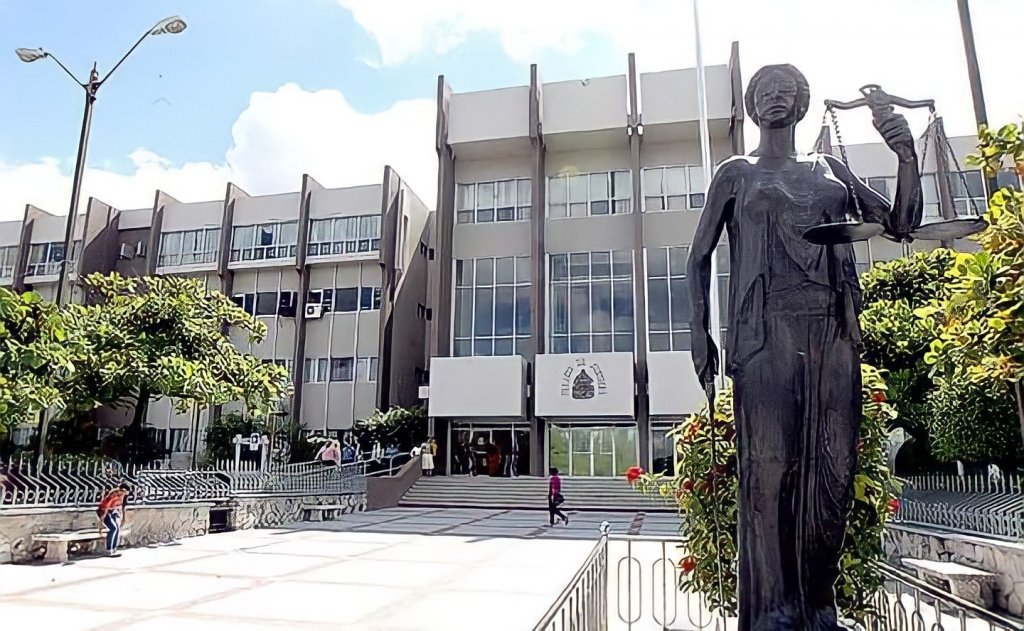The Negative Impact of Prohibiting and Restricting Honduras’ Special Economic Zones

The Honduran Supreme Court of Justice declared the law that underpins the Honduran special economic zones (ZEDEs) unconstitutional with retroactive effects. Such a ruling not only violates a key principle of sound governance (and harms legal certainty), but it also produces a series of negative economic effects.
Together with my coauthor, Daniel Fernández, we published a paper back in 2019 estimating the positive economic impact of a successful special economic zone (SEZ) in Honduras. In this brief article, I would like to explore the potential damaging negative impact of the recent court ruling on foreign investment in Honduras, which is greater than simply foregoing potential ZEDE-investments as the decision has broader ripple effects on regular foreign investment in Honduras.
The Positive Effects of the Honduran ZEDEs: Foreign Investment and Local Development
Gross domestic product (GDP) per capita was estimated to reach $15,000 in 2040 and double that in 2050 inside the Honduran SEZs. This compares positively to our Honduran baseline estimate, in the absence of the SEZs, of less than $4,000 in 2040 and less than $4,500 in 2050.
This baseline estimate is based on past Honduran lack of significant (real) growth (1.25% a year since 1961 or 1.6% since the turn of the century). Honduras has experienced divergent, not convergent, growth over the past decades (its growth has been lagging compared to the growth of developed economies, rather than catching up with developed nations).
However, without SEZs this positive scenario will not materialize, but the opportunity cost of not having SEZs is not the only negative effect of the recent court ruling on the ZEDE law. Such arbitrary court rulings put in jeopardy any foreign investment in Honduras, not only ZEDE investments, as they are a source of legal uncertainty. Legal uncertainty punishes investment flows.
The Negative Effects of Declaring Unconstitutional the Honduran ZEDEs: Foreign Disinvestment and Legal Compensation
Not only will a prohibition of ZEDEs affect ZEDE investment, but it will also, more broadly, affect total Honduran foreign direct investment (FDI).
First, we must distinguish between greenfield and brownfield FDI. Greenfield investment projects involve completely new investments, plants and equipment. For instance, when Tigo Guatemala was fully acquired by Millicom, the purchase was registered as FDI, but does not count as a greenfield investment project. Property, capital goods, was transferred from a national owner to a foreign owner. Both types of FDI are positive, but it is generally acknowledged that greenfield projects are superior in producing economic development.
In this sense, the Honduran government has failed in attracting serious amounts of FDI, but has utterly failed in attracting serious amounts of greenfield investments:
For instance, Honduras attracted a meager $2.82 per Honduran in greenfield investment. In 2022, this figure was slightly higher, at $18.31 per capita, but not nearly enough to alleviate in any significant way the high levels of Honduran poverty.
It is especially remarkable that of the $191 million in 2022, a large part is, in fact, ZEDE investment. This is even more remarkable if we consider that most of Honduran greenfield investment is, thus, concentrated in the 0.004% of territory that Honduran ZEDEs in the present cover. In other words, because of the recent court ruling declaring the Honduran ZEDEs unconstitutional, Honduras will lose most of its greenfield investment.
The Economic Costs of the Ruling’s (International) Legal Consequences
Moreover, there is a high likelihood of the Honduran government being forced to pay damages to the ZEDE investors and companies through legal arbitrage. For instance, the free trade agreement DR-CAFTA includes a clause that protects US investors against (indirect) expropriation. Article 10.7(1) of DR-CAFTA states that no party “… may expropriate … a covered investment either directly or indirectly …” In addition, there exists another treaty signed between Honduras and Kuwait that provides a 50-year period of “legal certainty”, that is, present investments made under existing law being protected from retroactive legal changes. The economic cost of legal compensation is estimated at $10,700 million by a US-based actuary. Damages and compensation derived from a lawsuit tend to be relatively high as they are the product (present value) of future foregone benefits.
If this number is anywhere near correct, it surpasses annual FDI by many times. Even just half of the estimated damages, to be paid by the Honduran government (and by the Honduran taxpayer), is quite disastrous, as the court ruling means not only missing out on additional FDI, but also produces legal damages to the Honduran government that exceed many years of FDI.
Hampering Foreign Investment in General: The Economic Cost of Increased Legal Uncertainty
Besides the legal consequences of the recent court ruling in Honduras, we should also consider second-order effects, that is, this court ruling, especially due to its retrospective nature, is damaging to investor confidence as legal uncertainty increases. A country that treats investors well and that welcomes foreign investors, will receive more investment and be able to grow faster than peers. Similarly, countries that treat investors badly and are hostile to foreign investment, will receive less and investment and will grow slower than its peer or even completely ceases to grow. Retroactivity is particularly harmful to legal certainty, since investors cannot be confident as to what rules will apply before they make an investment, instead of after. If investors are insufficiently confident in the legal certainty surrounding their investment, they will refrain from making investments. Indirect confiscation is another contributor to legal uncertainty, since an investor cannot know upfront whether the fruits of their investments will be confiscated by authorities when they materialize. If the risk of confiscation is sufficiently high, investors will refrain from investing in Honduras.
As data suggests, there might be a relationship between higher FDI, partly because of the ZEDEs, and Honduran per capita growth rates. After the ZEDEs began, the average growth rate was 60% higher than in the period before the ZEDEs were introduced. However, the current court ruling might not only throw Honduras back to its old growth rates, but much worse: it might grow slower than before because of the increased legal uncertainty to investors. As a possible scenario, I have used (pre-COVID) Nicaraguan growth rates, a country plagued by direct and indirect expropriations, legal uncertainty, and discretionary government interference in business with little regard for the rule of law.
It is very important to note that this GDP per capita growth rate is nationwide (that is, Honduran growth), which is different, and likely lower, than GDP growth within ZEDEs that boast higher levels of capital formation. This implies that Honduras would be much better off with ZEDEs, economically, but at the same time we ignore in these estimates the possibility of much higher growth (and the related benefits of growth) of Hondurans directly or indirectly tied to the ZEDEs.
However, even at these growth rates, the numbers after a 30-year period are staggering. If we take current Honduran GDP per capita (current US$) as a starting point and then project GDP per capita after 30 years in all three scenarios, the differences are striking:
After 30 years, Honduran GDP per capita would be almost $8,000 dollars lower, which is twice Honduras’ total current GDP per capita. Moreover, the added legal uncertainty, in a Nicaragua-style scenario, would skim off almost $2,500 of GDP per capita.
In short, by restricting the ZEDEs, over $5,000 would be shaved off of Honduran GDP per capita as foregone opportunity cost. But, moreover, the added legal uncertainty introduced by the retrospective nature of the court ruling, threatening foreign investment in general, would reduce GDP per capita by another $2,500.
Conclusions
Taking down the ZEDEs by a misguided attempt to use the courts to rule retroactively not only implies foregoing on the benefits that the Honduran ZEDEs would produce for the Honduran population (especially in attracting greenfield investment projects). As the retroactive court ruling also adds an immense layer of legal uncertainty over any foreign investment in Honduras, the ruling has broader repercussions. We have briefly explored these negative effects: lower investment, legal damages that exceed many years of FDI, and lower Honduran GDP per capita. The damage caused by the blatant disregard of the rule of law by the sitting Honduran government goes beyond the immediate loss of the ZEDEs, affecting Honduras' long-term economic trajectory.
Get our free exclusive report on our unique methodology to predict recessions

Olav Dirkmaat
Olav Dirkmaat is professor in economics at the Business School of Universidad Francisco Marroquín. Before, he was VP at Nxchange and precious metals analyst at GoldRepublic. He has a PhD in Economics from the King Juan Carlos University in Madrid. He has a master in Austrian Economics from the same university, as well as a master in Marketing Strategy from the VU University in Amsterdam. He is also the translator of Human Action of Ludwig von Mises into Dutch. He has a passion for investing, and manages funds for relatives, looking for investment opportunities in markets that are extremely over- or undervalued.
Get our free exclusive report on our unique methodology to predict recessions


